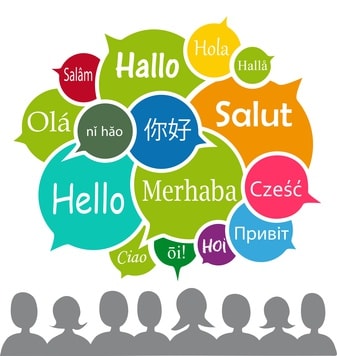Part of the adventure of being on holiday lies in trying to communicate with people who don’t speak English. It can be rewarding to learn at least a few basic words of another language, and the quality of service you receive will almost always improve if you’re seen to make an effort. So if you’re planning to dabble with a little français or español, what are the pitfalls you should be aware of? Here are a few language faux pas to look out for:
 Photo by: Primalux/Fotolia
Photo by: Primalux/Fotolia
1. Charades
It sounds simple enough – if you can’t communicate through words, a few hand gestures are the obvious way to explain what you’re looking for. While these can sometimes help you out of a tricky situation, you need to be aware of different local interpretations. The thumbs up signal for example, understood as meaning ‘ok’ in much of the world, has an altogether ruder meaning in parts of southern Europe and the Middle East.
2. Expecting everyone to speak English
I remember watching in a Parisian cafe as a customer asked in badly broken French where the toilet was. The waiter tutted and pointed them down the stairs to the loo. Moments later an American man approached the same waiter and said “Hey, where’s the bathroom?”. The waiter pointed out of the door and across the road to the park opposite. Even a few words are enough to show respect and will usually result in you getting better service.
3. Speaking slowly
In the same vein, a common scenario played out across the world is the one where the local person doesn’t speak English, so the tourist decides that speaking slowly will solve the problem. Put yourself in the waiter’s shoes: if someone repeated a Portuguese sentence to you at half the speed, would it help in any way?
4. Shouting
A carry-on from talking slowly is increasing the volume. Surely they’ll understand if you speak slowly AND shout. It doesn’t take a genius to work out how much this will wind up the person you’re dealing with.
5. Mangling a name
As someone with a foreign name, I wince when people greet me with one of many mispronounced variations; but it’s understandable. What’s far worse is when people keep going with their own version of my name, even when I’ve corrected them. So if the hotel receptionist explains that it’s ‘Ho-zay’, don’t carry on calling him Josie.
6. Making fun of the language
Sometimes the words of a language can look funny to a stranger (never more so than on a restaurant menu). Resist the temptation to laugh out loud at the local language; it will often be considered very rude and you’ll only have yourself to blame if the waiter asks the chef to add an unwanted extra to your plate.
If you do decide to really make an effort, these are a few tips to help preserve your dignity:
7. False friends
Some words in other languages look just like familiar English words. Most of the time you’ll be correct to assume they have the same meaning, but beware – there are some potentially awkward exceptions. If you make a mistake in Spain and tell someone that you’re ‘embarazada’, they may respond by looking at your tummy or offering you a seat – you’ve just announced your pregnancy.
8. Wrong language
If you make a habit of dabbling in a few languages it’s very easy to let your brain forget whether you’re in Paris, Madrid or Berlin. Speak at a measured pace and, particularly if you’re travelling between countries, allow enough time between brain and mouth to make sure you’re not automatically saying ‘Si’ in France or ‘Merci’ in Germany.
9. Mixing it with English
A common mistake made by those with just a smattering of a language is to use the foreign words they know and fill in the gaps with English. The result will make perfect sense to the person speaking, but will almost certainly be gobbledegook to the person who is supposed to understand.
10. Trusting translations without checking them
Google Translate can be a lifesaver when trying to untangle a word or sentence in another language. But beware of trusting other sources too freely, as the outcome can be embarrassing. A Welsh council was very impressed when their in-house translation team replied to an email request within minutes with a Welsh translation for a road sign. It was only after the sign was in public use that people pointed out their mistake. The Welsh version of the sign read “I am out of the office at the moment. Please send any work to be translated.”
Know the language faux pas to avoid and ready to get going?
Avoiding these common language mistakes will ensure that you have a fantastic time. You’ll no doubt learn some of the lingo and avoid offending anyone!
If you would like more tips to help you master another language, take a look at our guide to learning a new language. Make sure you follow us on Twitter and Facebook for the latest travel tips and news. Remember to sign up to our newsletter below for the latest deals.
Subscribe to our newsletter
Want our blogs emailed direct to you? Sign up below to get updates featuring our blogs and car hire top tips. Receive the best deals on car hire straight to your inbox.
Written by Andy Jarosz.





